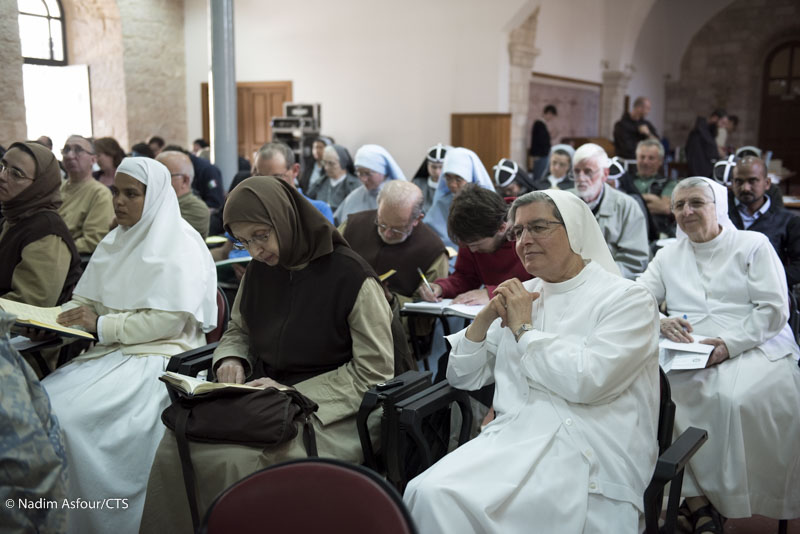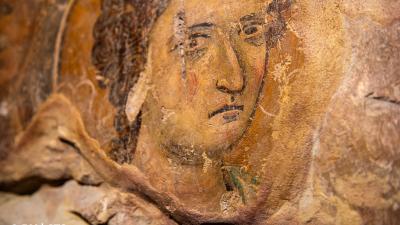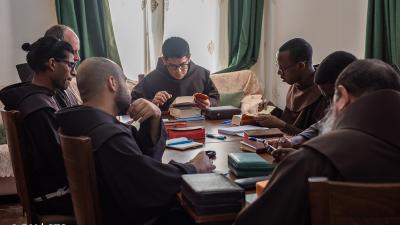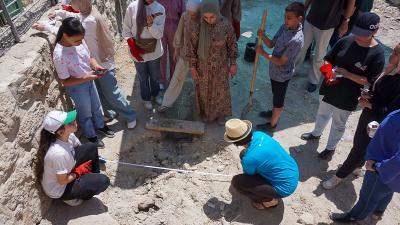
At the “Immaculate” Auditorium, it is not easy to find a seat. Many nuns, priests, friars, as well as lay people, have been visiting Saint Savior’s during recent days. With a notebook and a pen, they are ready for the 42nd biblical and theological refresher course. From April 18-21, the Studium Biblicum Franciscanum of Jerusalem, with the patronage of Italian Episcopal Conference (CEI) and the Italian Education Ministry (MIUR), have decided to re-launch this event, as has been occurring for years.
Last year’s theme was “The Pentateuch (Torah): between Judaism and Christianity.” This year, we return to deepen [our knowledge of] the Old Testament. The theme in fact is “The Psalms: the Prayer of Israel and the Church.” Every year, there is a different topic, and this year the Jewish and Christian reading of the entire Psalter, from Psalm 1 to 150, is at the heart of numerous conferences.
But why the Psalms specifically? “Among the books of the Old Testament, it is the book that those of us who are consecrated carry around the most, in other words, the majority of participants in this course. Most of us use it for daily prayer. It was therefore a way to engage even more people who want to learn something that is useful for their personal lives. Salter's prayer is the easiest way to do it,” said Fr. Alessandro Coniglio, professor at the Studium Biblicum Franciscanum.
“Years ago, they tried to involve the audience on ecclesiastical issues. For example: a Pope’s encyclical would come out, and we would decide to analyze it more deeply,” said Fr. Alessandro, “Then, by speaking with many participants, we realized that current issues had already been looked at. So, ever since last year, we have returned to this full biblical dimension.”
But the program is not limited to theory. From the Auditorium at Saint Savior’s, where morning classes are held, participants go for afternoon excursions. “We at Studium Biblicum Franciscanum, issue the degree in “Biblical Sciences and Archaeology.” Our idea, in fact, is just to incarnate the Word on earth, in this very land. This is not a purely theoretical lesson. For those who come to Jerusalem, the added value is that of being able to concretely experience in the afternoon what you learned about in the morning,” said Fr. Alessandro.
Participants go around chatting in the classroom during the break. This year there are about 160 of them. Some were already in the Holy Land, and others arrived in Jerusalem for the occasion, taking on the challenge of being here on the last days of the Easter crowdedness. “Coming from abroad this year was particularly demanding, even from an economic point of view, given the timeframe. But there are still so many of us here!” said Fr. Massimo Pazzini, the dean of the Studium Biblicum, during his welcome speech.
Many religion teachers also participated, especially from Italy. A young substitute teacher from Milan said, “This is my first experience here and this for me represents a real refresher course. I am really liking the lessons and the Holy Land. I have decided that I will have to organize a pilgrimage as soon as possible in order to return to the Holy Places.” For two years, the MIUR (Italian Ministry of Education, University and Research) has decided to recognize this course as a professional refresher for teachers like him, as requested by Pontifical University Antonianum in Rome.
Most of the audience was composed of nuns. There were habits of different colors, as many as the orders that were represented. Among them was Sister Carmen, who traveled only a few miles. “I have been in Nazareth, in Galilee, for 25 years. Again this year I took advantage of this opportunity, as I do every year. Since the '90s, I have never missed the refresher courses organized by Studium Biblicum here in Jerusalem. And I always find them so interesting!” She takes part in all of the afternoon hikes, led by Fr. Alliata and Fr. Gianantonio Urbani of the Diocese of Vicenza.
For the traditional biblical and theological refresher course, there was also great novelty: a new logo that, as Fr. Massimo said, “aims to illustrate the features of our Studium Biblicum Franciscanum: digging tools and the book of the Bible.”




